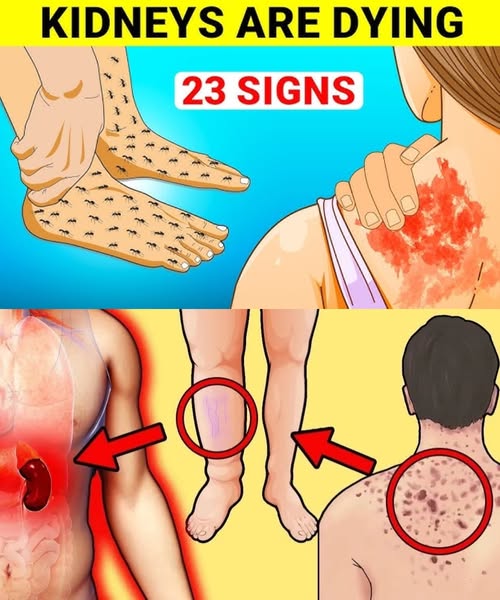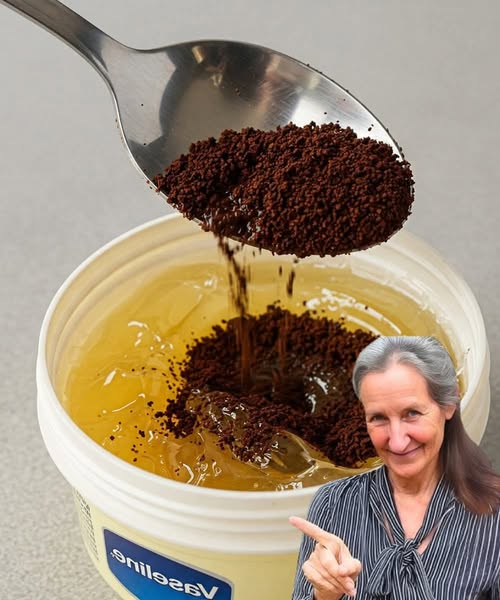Introduction
Your kidneys are small but mighty organs—responsible for filtering waste, balancing fluids, producing hormones, and keeping your body’s internal system running smoothly. Yet, most people don’t realize something is wrong with their kidneys until the damage is already severe. According to the National Kidney Foundation, nearly 37 million Americans have kidney disease, but 90% don’t even know it.
That’s why recognizing the warning signs of kidney problems early is crucial. Ignoring them could lead to chronic kidney disease (CKD), dialysis, or even life-threatening conditions.
In this article, we’ll uncover 23 critical warning signs your kidneys are crying for help, along with expert insights, actionable tips, and answers to the most frequently asked questions about kidney health.
23 Warning Signs Your Kidneys Are Crying for Help
1. Persistent Fatigue and Weakness
When your kidneys don’t function properly, toxins and waste accumulate in your bloodstream. This leads to constant tiredness, muscle weakness, and difficulty concentrating.
2. Swelling in Ankles, Feet, or Hands
Excess fluid retention is a red flag. Kidneys struggling to eliminate sodium and fluids cause noticeable swelling—known as edema.
3. Puffy Eyes in the Morning
A common early sign of kidney damage is puffy or swollen eyes, often due to protein leaking into urine.
4. Changes in Urination Frequency
Frequent nighttime urination (nocturia) or a sudden decrease in urination can signal declining kidney health.
5. Foamy or Bubbly Urine
This indicates excess protein leakage, an early warning of kidney dysfunction.
6. Blood in Urine
Blood in urine (hematuria) is never normal and may point to infections, kidney stones, or serious kidney damage.
7. Dark or Cloudy Urine
Discolored urine is a potential sign of kidney infection, dehydration, or internal bleeding.
8. High Blood Pressure
Damaged kidneys struggle to regulate blood pressure, creating a dangerous cycle that worsens kidney disease.
9. Difficulty Sleeping
Kidney dysfunction increases toxins in the blood, making sleep disturbances more common.
10. Shortness of Breath
Fluid buildup in the lungs, caused by poor kidney function, can trigger breathing difficulties.
11. Metallic Taste in Mouth
Waste accumulation in the blood causes a metallic taste, bad breath, and decreased appetite.
12. Persistent Nausea or Vomiting
A buildup of waste products (uremia) often leads to stomach issues, especially in advanced kidney disease.
13. Itchy and Dry Skin
Healthy kidneys regulate minerals. Malfunctioning kidneys cause imbalances, leading to persistent itching and dry skin.
14. Cold Intolerance
Anemia, common in kidney disease, reduces oxygen supply to tissues, making you feel unusually cold.
15. Dizziness and Difficulty Concentrating
Poor kidney function limits oxygen delivery to the brain, leading to dizziness, memory issues, and confusion.
16. Back Pain Near Kidneys
Pain in the lower back or side may indicate kidney stones, infection, or cysts.
17. Muscle Cramps
Electrolyte imbalances caused by kidney disease often result in painful muscle cramps.
18. Loss of Appetite
A decreased appetite and unexplained weight loss often accompany kidney-related complications.
19. Swollen Face or Cheeks
Fluid retention doesn’t just affect the ankles—it can cause swelling in the face too.
20. Frequent Urinary Tract Infections (UTIs)
Recurring UTIs are a warning that bacteria may be spreading to the kidneys.
21. Ammonia-Like Breath
An unusual breath odor resembling ammonia can indicate advanced kidney disease.
22. Pale or Yellowish Skin
Kidney issues can cause anemia and toxin accumulation, giving the skin a pale, unhealthy look.
23. Restless Legs Syndrome
Kidney failure often triggers restless legs syndrome, making it difficult to relax or sleep.
Frequently Asked Questions (FAQs)
1. What causes kidney problems in the first place?
The most common causes are diabetes, high blood pressure, genetic conditions, infections, and prolonged use of certain medications (such as NSAIDs).
2. How can I check if my kidneys are healthy?
Doctors recommend routine tests such as:
- Blood test (creatinine & GFR levels)
- Urine test (protein leakage)
- Blood pressure monitoring
3. Can kidney disease be reversed?
While chronic kidney disease (CKD) is usually irreversible, early detection and lifestyle changes can slow progression dramatically.
4. What foods are best for kidney health?
Kidney-friendly foods include:
- Leafy greens (in moderation)
- Berries (low in potassium)
- Apples
- Garlic
- Fish rich in omega-3s
Avoid processed foods, excess salt, and high-potassium foods if advised by your doctor.
5. Who is most at risk of kidney disease?
People with:
- Diabetes
- Hypertension
- Heart disease
- Family history of kidney disease
- Age over 60
6. What happens if kidney disease goes untreated?
Untreated kidney problems can lead to end-stage renal disease, requiring dialysis or a kidney transplant.
Strategies to Protect Your Kidney Health
- Stay Hydrated – Drink 8 glasses of water daily unless otherwise directed.
- Monitor Blood Pressure & Blood Sugar – Keep them within healthy ranges.
- Adopt a Kidney-Friendly Diet – Low sodium, low processed foods, balanced nutrition.
- Avoid Overusing Painkillers – NSAIDs like ibuprofen can harm your kidneys.
- Exercise Regularly – Improves circulation and reduces risks of diabetes and hypertension.
- Get Routine Checkups – Especially if you fall into a high-risk category.
- Quit Smoking & Limit Alcohol – Both significantly damage kidney health.
Storytelling Example: Why Early Detection Matters
Take the case of John, a 52-year-old accountant. He ignored his constant fatigue and swelling ankles for months, assuming it was “just stress.” By the time he saw a doctor, he was diagnosed with stage 4 chronic kidney disease. With medication, dietary changes, and lifestyle adjustments, he managed to slow its progression. John’s story highlights the urgent need for listening to your body’s warning signals before it’s too late.
Conclusion
Your kidneys are silent workers, filtering more than 50 gallons of blood every single day. Yet, when they begin to fail, the signs can be subtle. From fatigue and swelling to changes in urination, these 23 warning signs are your body’s way of sounding the alarm.
The key takeaway? Don’t ignore the signals. Early detection, lifestyle changes, and medical care can protect your kidneys and extend your life.
👉 If you or someone you love is experiencing these symptoms, consult a healthcare professional immediately. Remember: your health is your wealth, and protecting your kidneys is an investment in your future.



